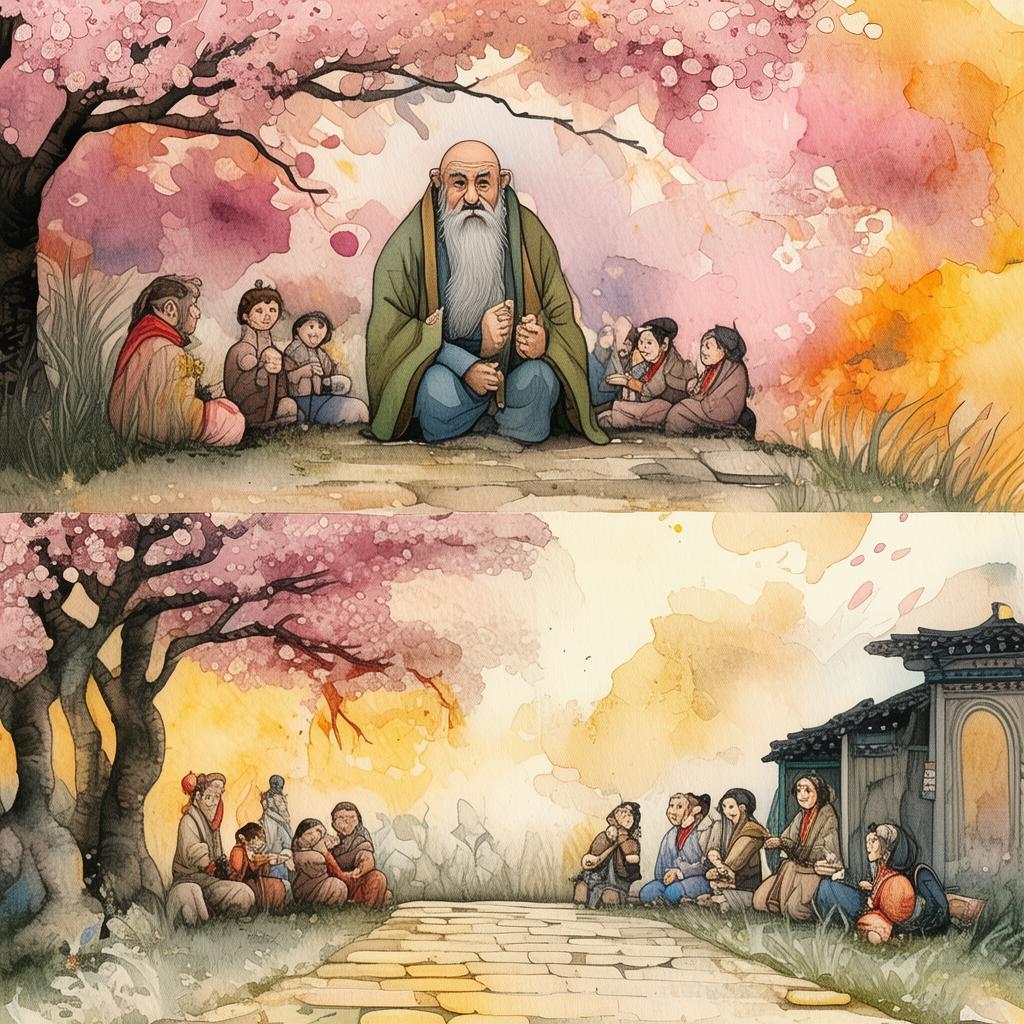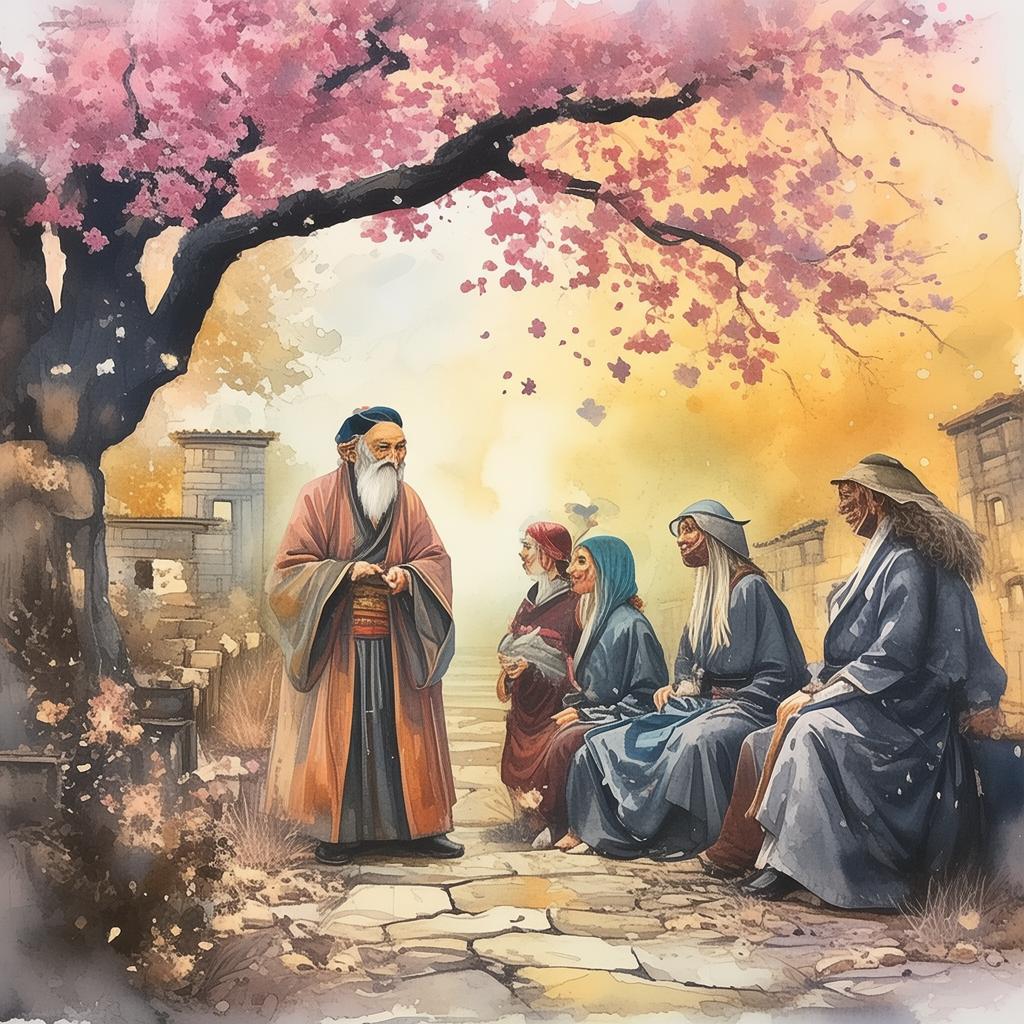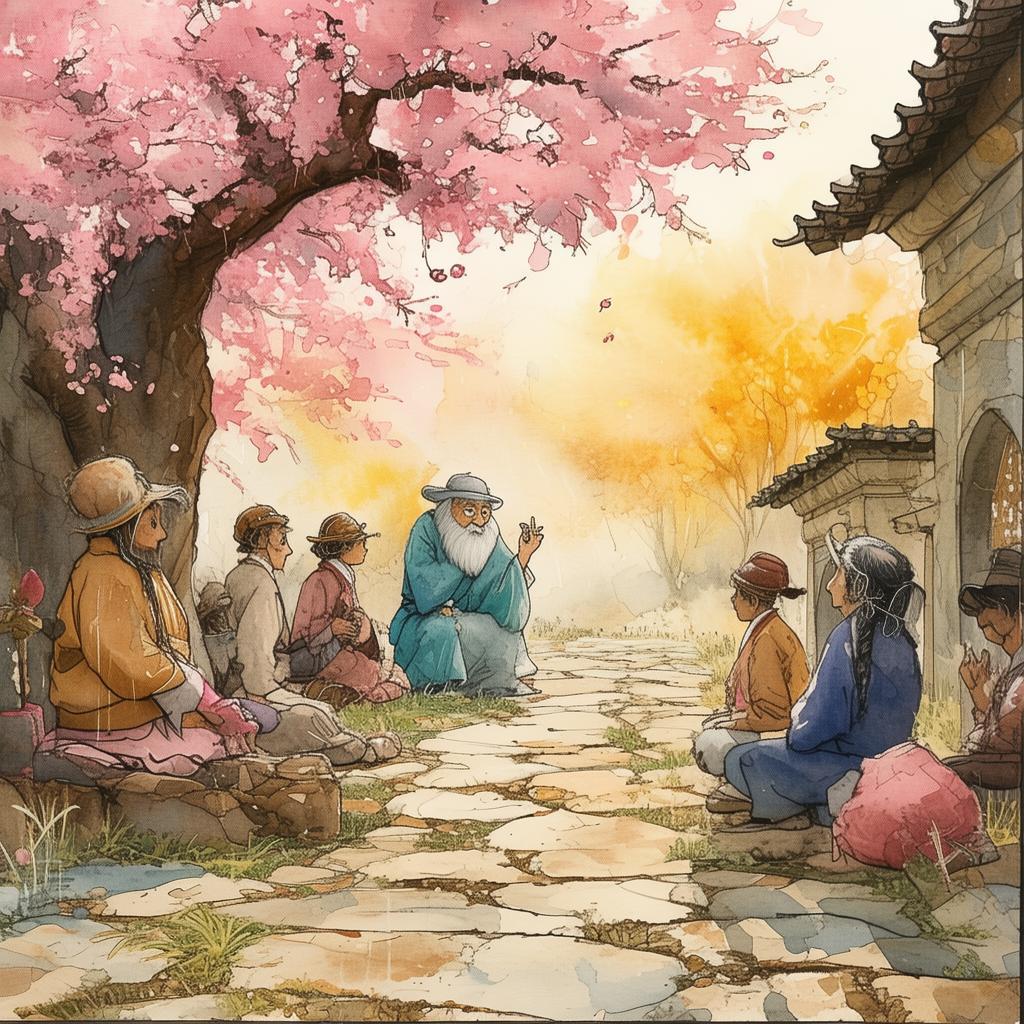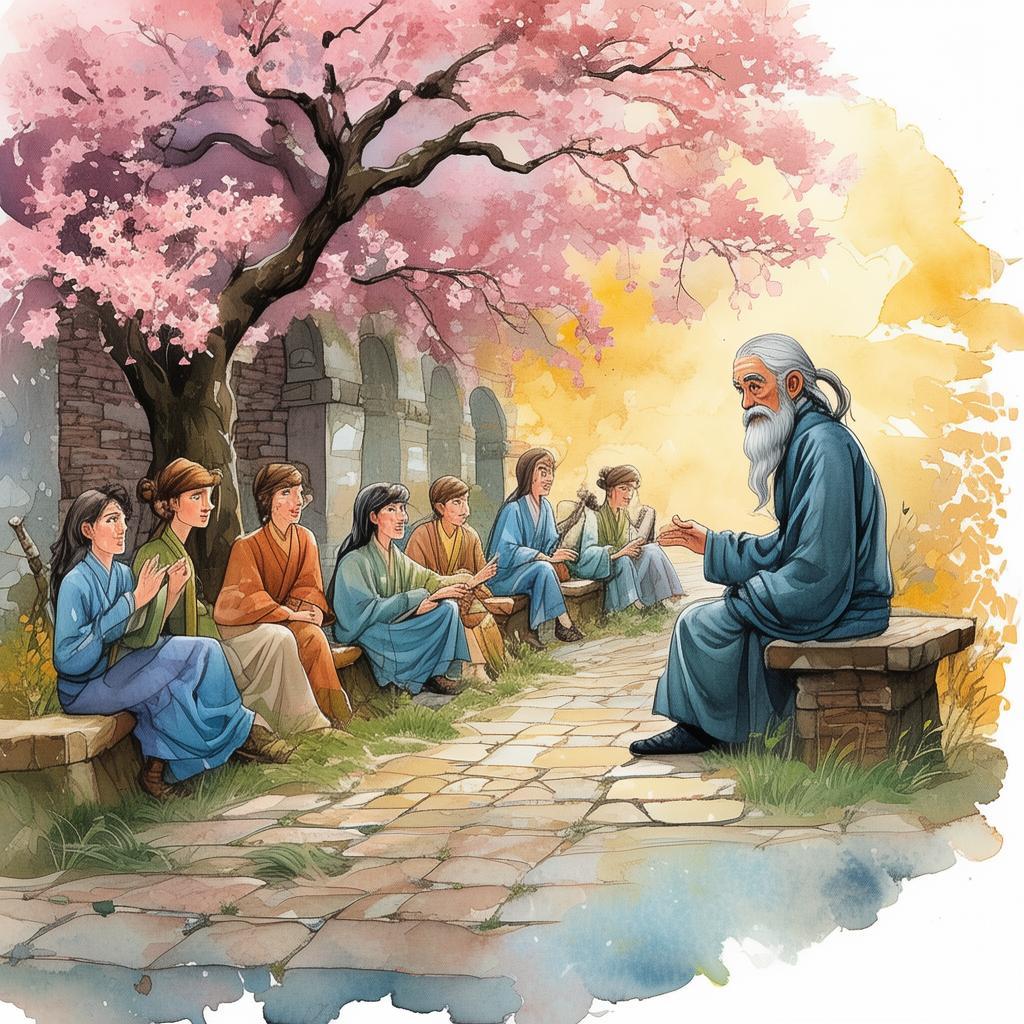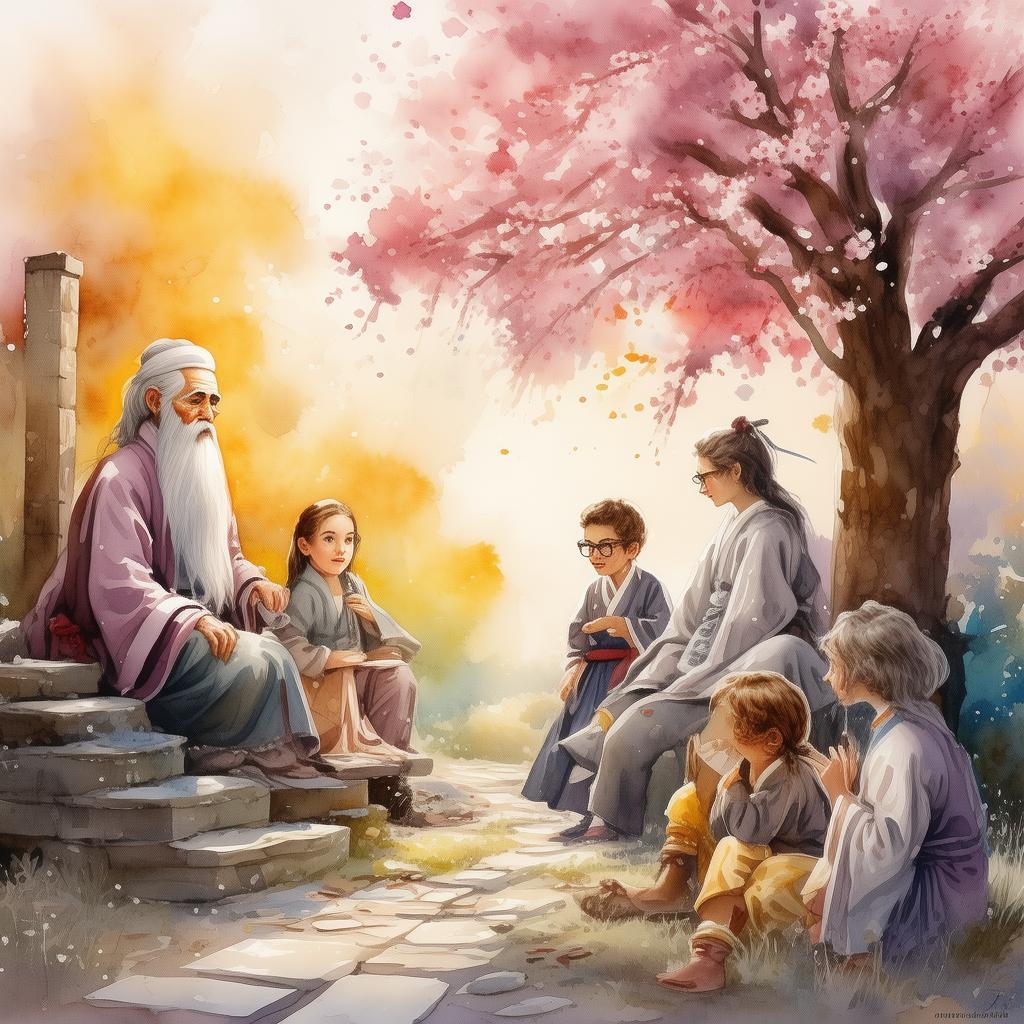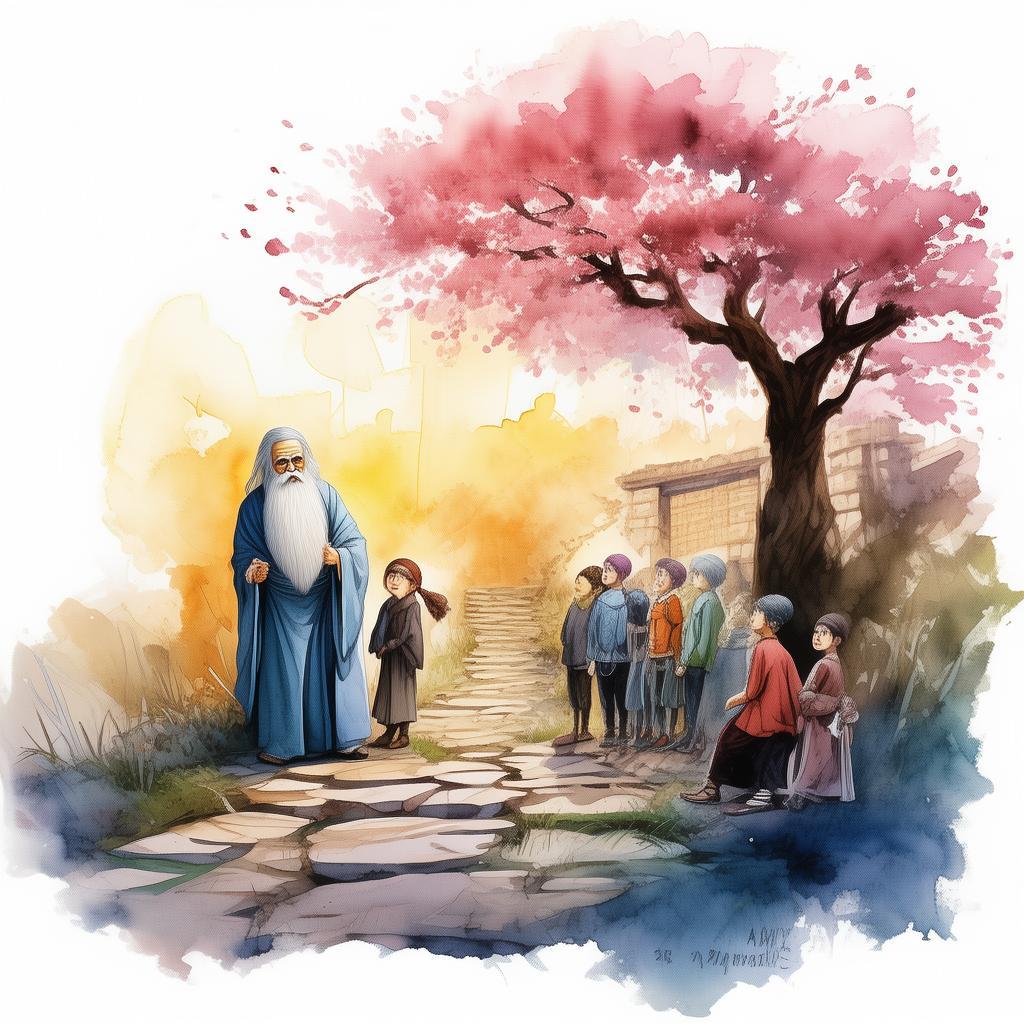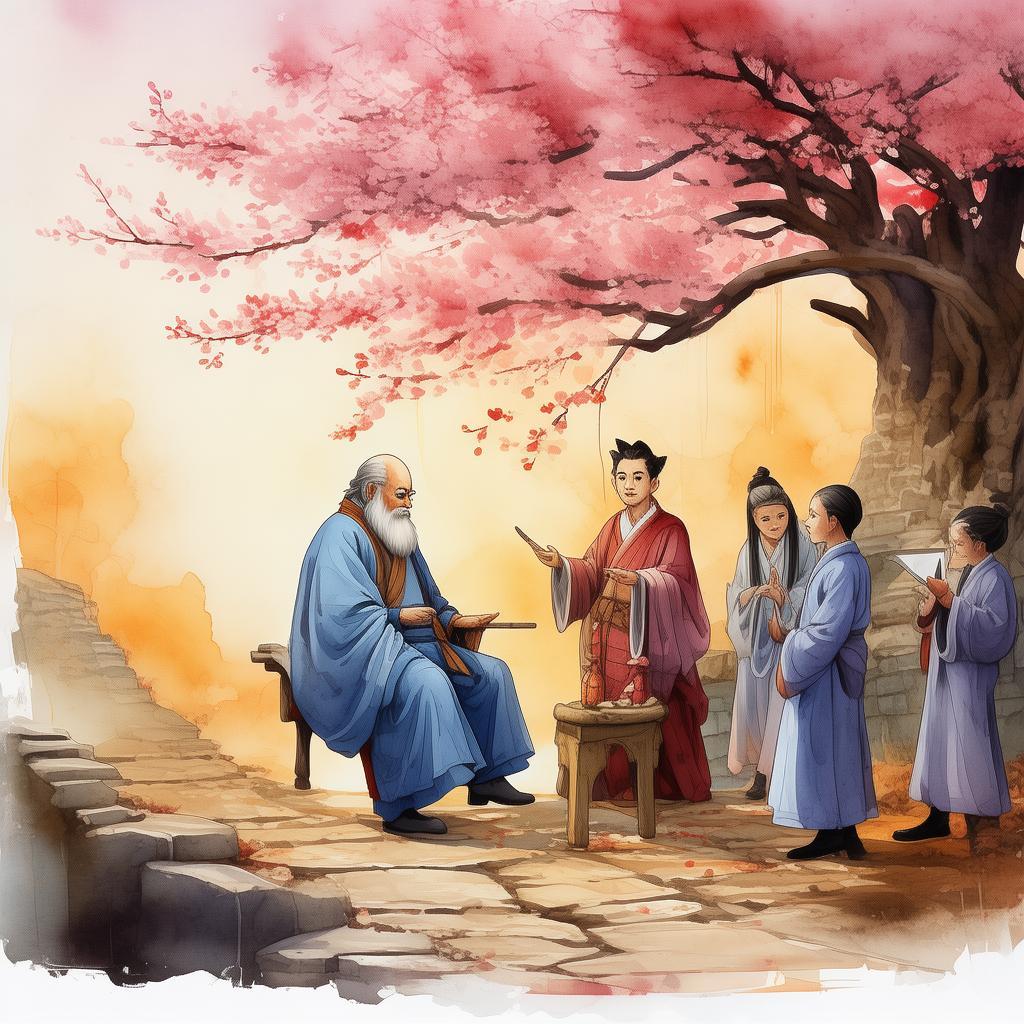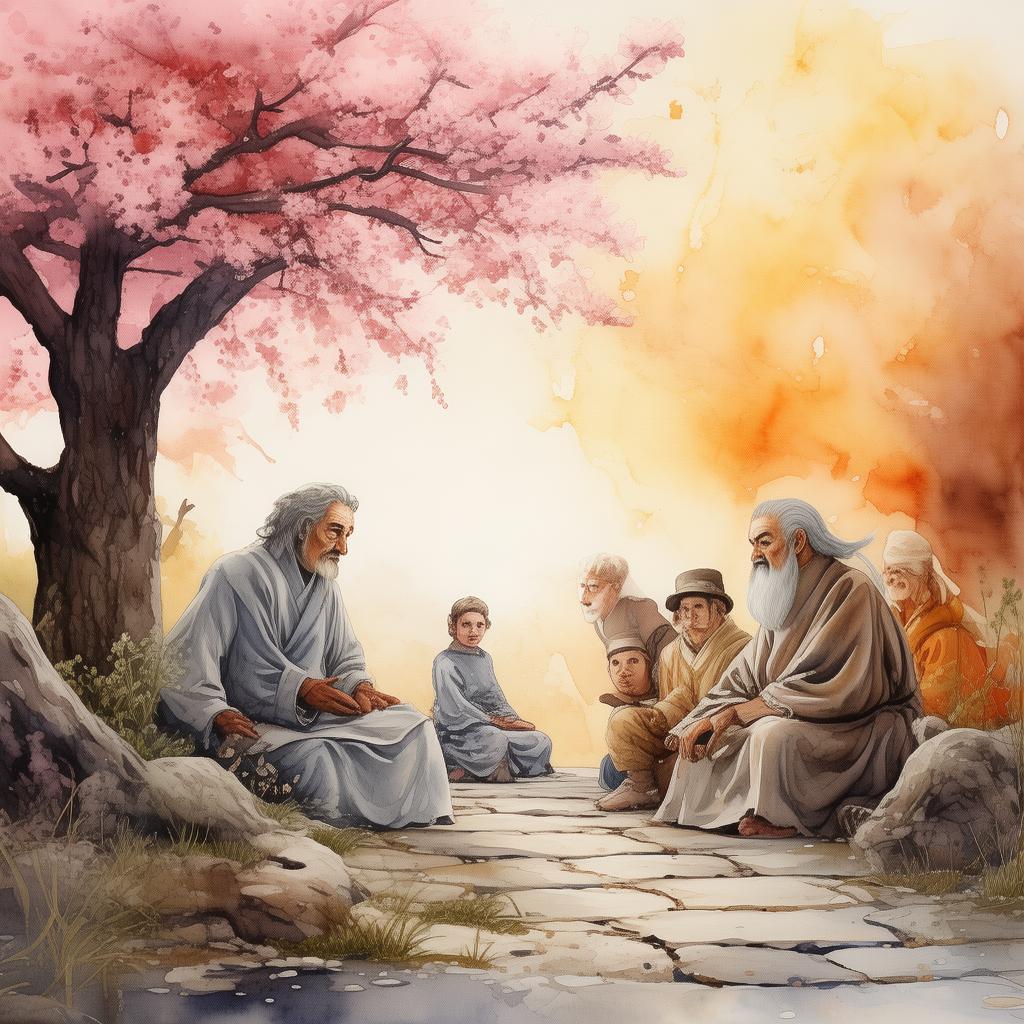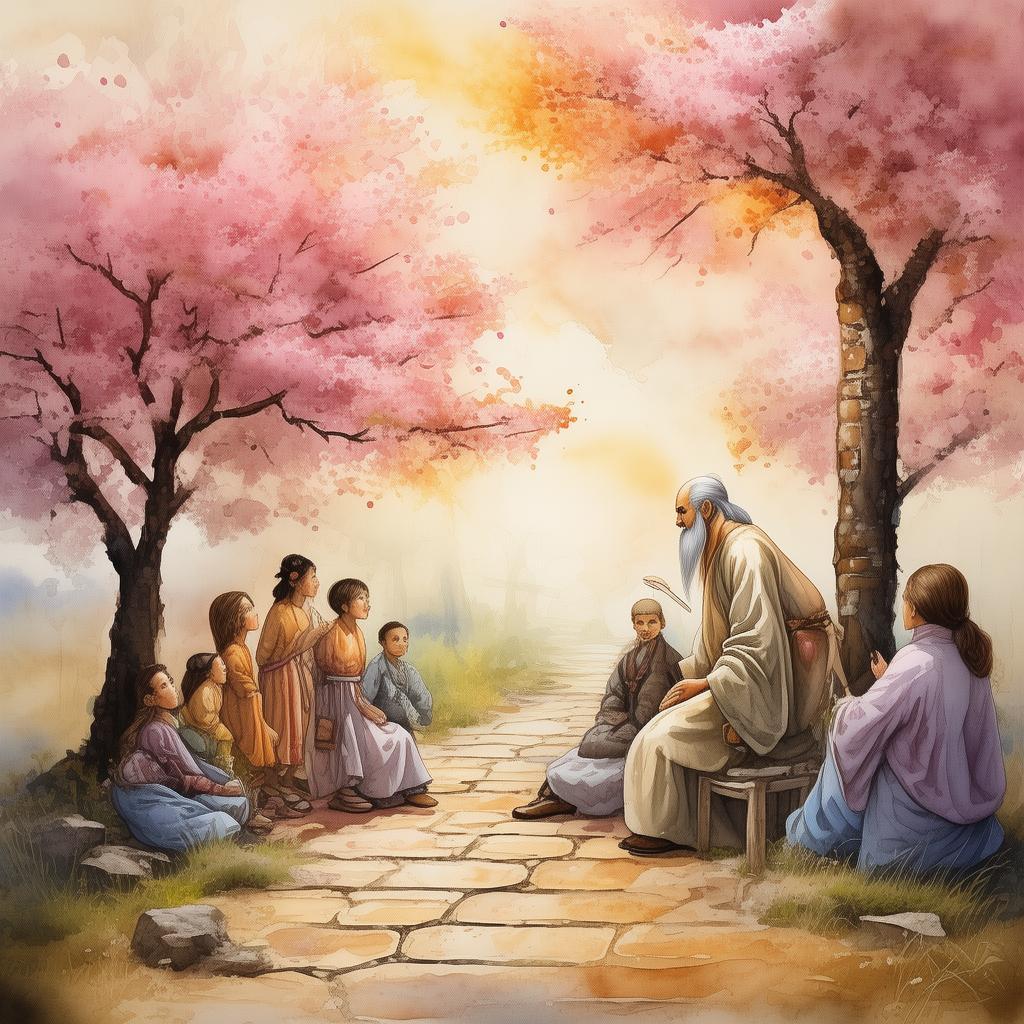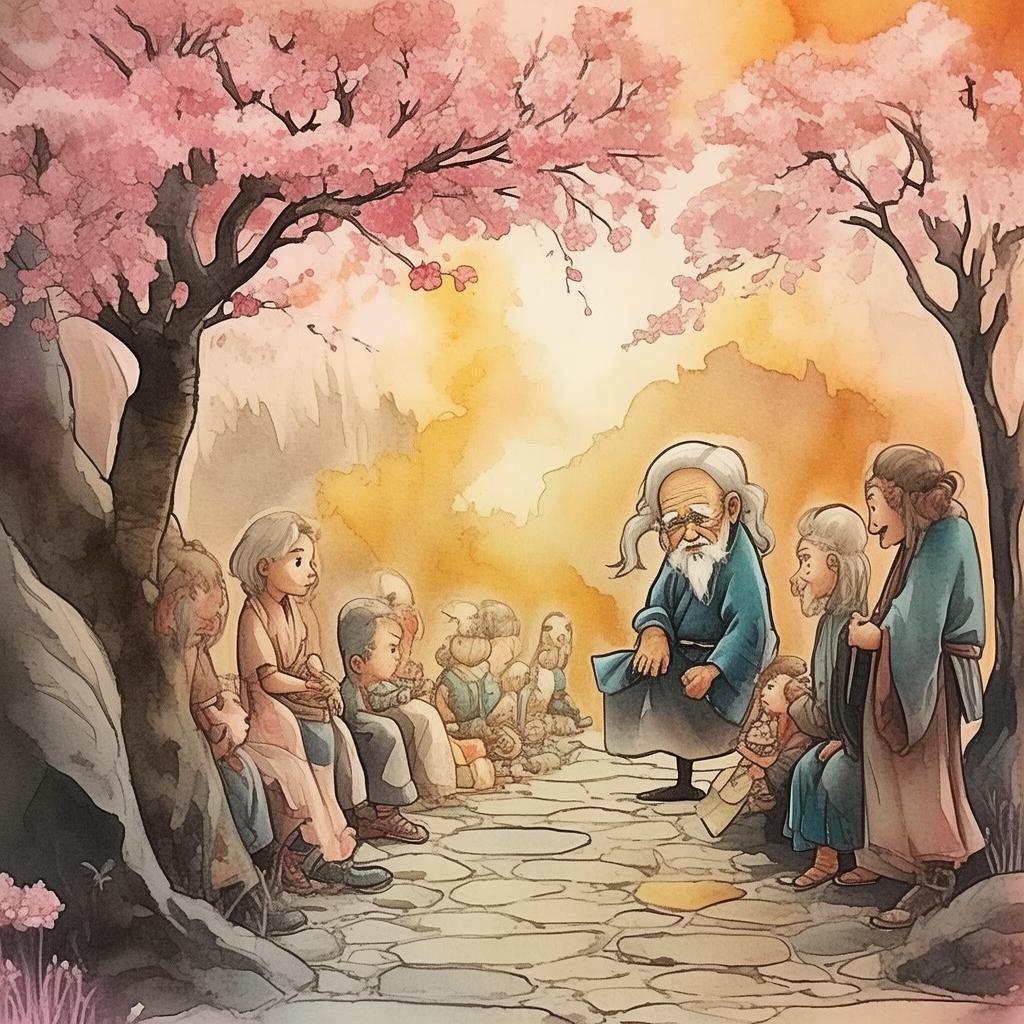Qin's Vow, Chu's Despair: The Tale of Loyalty Betrayed
In the ancient realm of China, two mighty kingdoms stood at odds, their empires clashing with a fervor that could be felt across the land. Qin, known for its fierce warriors and strategic prowess, and Chu, renowned for its elegant scholars and artistic sensibilities, were at loggerheads. Yet, amidst the tensions, there was a tale of loyalty and sorrow that transcended the battlefield, a story that would come to define the fates of both kingdoms.
The tale begins with a young Qin warrior named Jing, whose life was as much defined by his martial prowess as it was by his unwavering loyalty to the kingdom. In a time when the two kingdoms were at the brink of war, Jing was dispatched on a secret mission to Chu. His mission: to forge an alliance between the two kingdoms, to prevent the inevitable bloodshed.
In Chu, Jing was greeted by a scholar named Ming, whose intellect and diplomacy were matched only by his loyalty to his kingdom. The two men, though from opposing sides, found themselves bound by a shared sense of duty and a desire to preserve peace. They became fast friends, bonding over their shared ideals and the common ground that lay between their nations.
As they exchanged stories and ideas, Jing and Ming's friendship grew stronger. They discussed the art of war, the philosophy of peace, and the virtues of loyalty. Ming taught Jing the delicate balance of diplomacy, while Jing imparted the discipline of martial arts. Their bond was not one of convenience, but of mutual respect and a shared vision of a world without conflict.
However, the peace they sought was fragile. The King of Qin, eager to expand his empire, grew impatient with the slow progress of diplomacy. He ordered Jing to return empty-handed, his mission a failure. But Jing, bound by his word and the friendship he had forged, refused to comply. He stayed behind, determined to fulfill his vow to Ming and to the cause of peace.
In Qin, the King's orders were met with resentment. The people of Qin were loyal to their king, and they saw Jing's actions as a betrayal. The King, in a fit of anger, declared Jing a traitor and ordered his execution. The news reached Chu, where Ming was shattered by the news of his friend's impending death.
Ming knew that he must act swiftly. He approached the King of Chu, who, despite his own desire for peace, was under immense pressure from the King of Qin. Ming pleaded for Jing's life, arguing that their friendship was a testament to the potential for harmony between the two kingdoms. The King of Chu, moved by Ming's words, agreed to help, but warned him that the path would be fraught with peril.
Ming set out on a perilous journey to save his friend. Along the way, he faced numerous challenges, including the treacherous terrain of the land and the political machinations of both courts. He was met with skepticism and betrayal, but he pressed on, driven by his unwavering loyalty to Jing.
As Ming approached Qin, he was confronted by the King himself. The King, recognizing Ming's courage and loyalty, was torn between his duty to his kingdom and his respect for Ming's commitment to their friendship. In a dramatic turn of events, the King relented and granted Ming passage to the execution grounds.
There, Ming found Jing, bound and ready for death. The sight of his friend filled him with despair, but he knew that he had to act. Ming stepped forward, his eyes filled with tears, and addressed the King. He spoke of the friendship between Jing and himself, of the shared ideals that had brought them together, and of the potential for peace that lay within their bond.
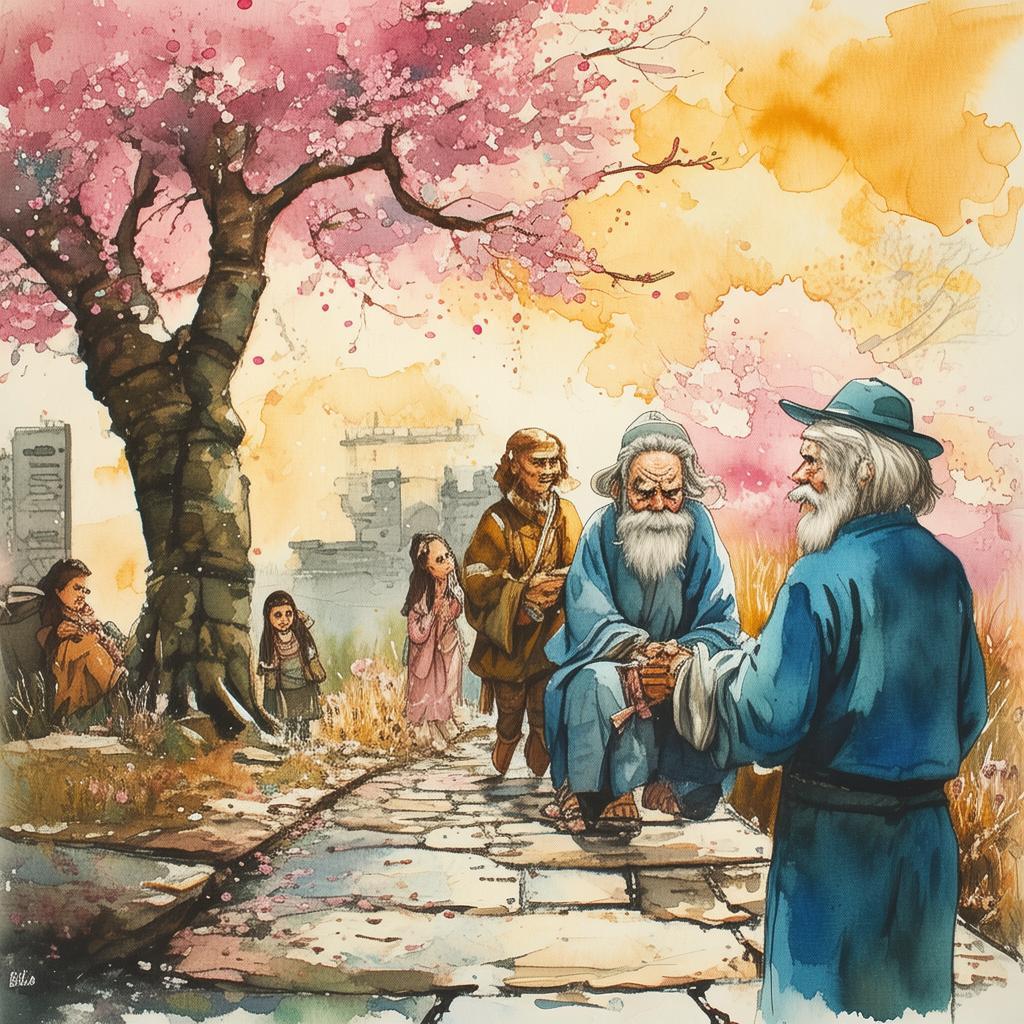
The King, moved by Ming's impassioned plea, realized the folly of his actions. He issued a royal pardon, sparing Jing's life. The crowd, witnessing this act of compassion, erupted in cheers. The bond between Jing and Ming had not only saved a life but had also brought the people of both kingdoms closer to understanding and peace.
However, the war was not averted. The King of Qin, humiliated by the King of Chu's decision, declared war on the very kingdom that had saved his loyal warrior. The conflict raged on, and the once-bonded friends found themselves on opposite sides of the battlefield.
Jing and Ming, though separated by the conflict, never forgot their vow to each other. They fought bravely, their actions driven not by loyalty to their respective kingdoms but by the memory of their shared ideals and the bond that had once brought them together.
As the war raged on, the story of Jing and Ming became a legend, a tale of loyalty and sorrow that would echo through the ages. The kingdoms of Qin and Chu, though victorious, were forever changed by the tragedy of their conflict and the strength of their friendship.
In the end, it was not the sword that won the day, but the power of the human spirit and the unyielding bond between two men who had once shared a dream of peace. The tale of Jing and Ming, Qin's Vow, Chu's Despair, would be a cautionary tale, a reminder that the cost of war is not merely the loss of life but the loss of the dreams that once united us.
✨ Original Statement ✨
All articles published on this website (including but not limited to text, images, videos, and other content) are original or authorized for reposting and are protected by relevant laws. Without the explicit written permission of this website, no individual or organization may copy, modify, repost, or use the content for commercial purposes.
If you need to quote or cooperate, please contact this site for authorization. We reserve the right to pursue legal responsibility for any unauthorized use.
Hereby declared.
